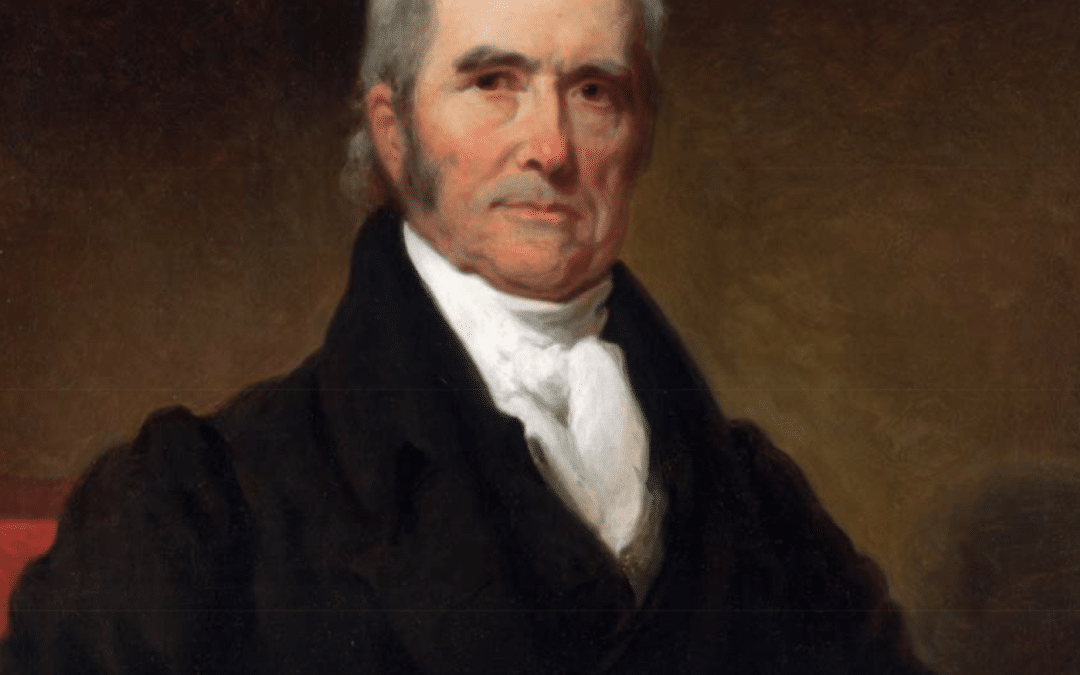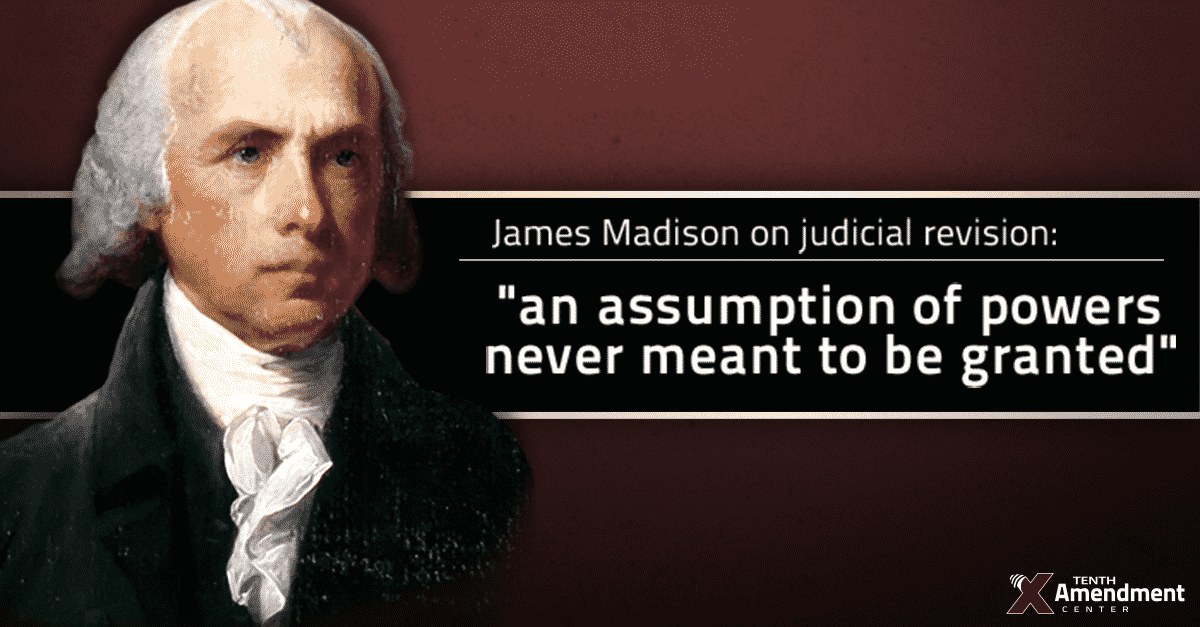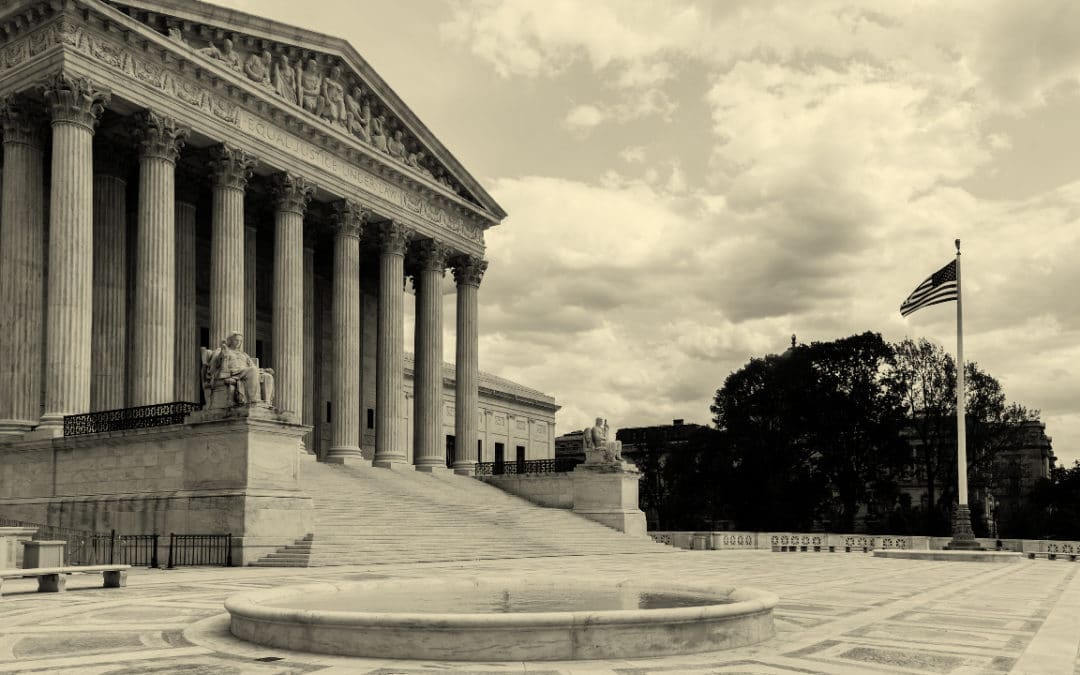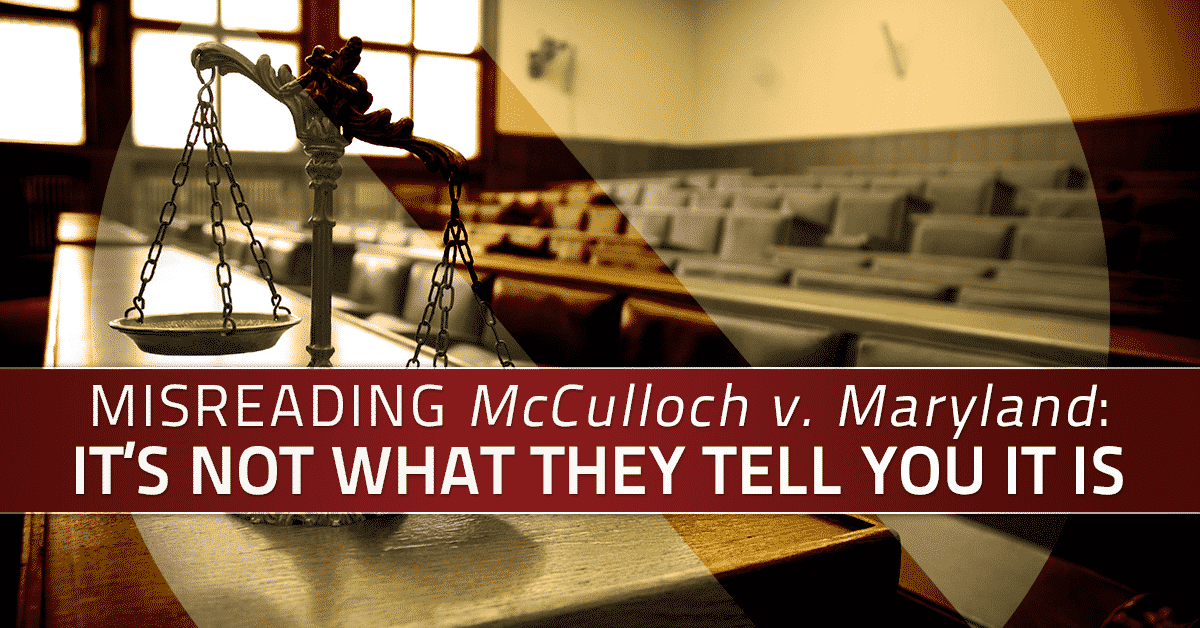
John Marshall


Today in History: John Marshall Appointed as Chief Justice
Today in history, on Jan 31, 1801, John Marshall was appointed the Chief Justice of the United States by President John Adams. Nominated at a time of severe partisan discord, Adams hoped Marshall’s appointment would help to counteract the influence of the Jeffersonian...
Why McCulloch v. Maryland – now 200 years old – is not a “big government” manifesto
This year marks the 200th anniversary of the Supreme Court’s ruling in McCulloch v. Maryland. In that case, Chief Justice John Marshall upheld Congress’s power to charter a national bank—a distant forerunner of the modern Federal Reserve System. Nearly all...
Judicial Revision: An “assumption of powers never meant to be granted”
EDITOR’S NOTE: The following is an excerpt of the book (chapter 16) Government by Judiciary: The Transformation of the Fourteenth Amendment, Foreword by Forrest McDonald (2nd ed.) (Indianapolis: Liberty Fund, 1997). In this text, Berger rejects the conventional view...
Judicial “Discretion” in 1787
EDITOR’S NOTE: The following is an excerpt of Raoul Berger’s book (chapter 16) Government by Judiciary: The Transformation of the Fourteenth Amendment, Foreword by Forrest McDonald (2nd ed.) (Indianapolis: Liberty Fund, 1997). A common historicist...
